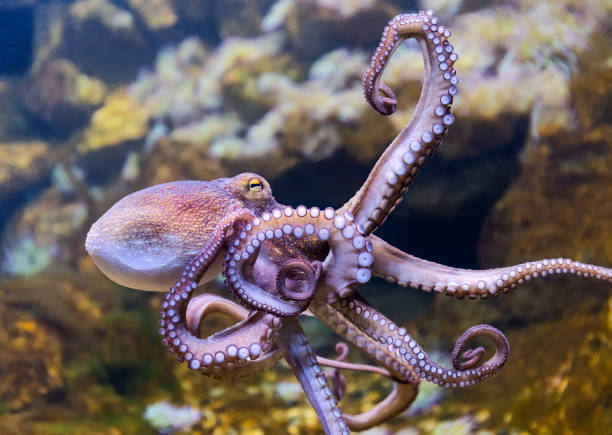Understanding the Remarkable Intelligence of Octopuses: An Underwater Odyssey
Introduction: Dive into the fascinating world of octopuses in this article where we unravel their unique intelligence, their mysterious behaviors, and their surprising interactions with humans. Octopuses, belonging to the class Cephalopoda, have a lineage that dates back to the late Cambrian period, about 500 million years ago. Despite their ancient history, it was only in the 20th century that scientists began to seriously study their cognitive abilities. Initial observations of their problem-solving skills, tool use, and complex behaviors sparked curiosity and led to further investigations.

The Astonishing Intelligence of Octopuses
Octopuses are considered one of the most intelligent invertebrates. They have a large central brain and additional “mini-brains” in each of their eight arms. This distributed nervous system allows them to process information efficiently. They have displayed problem-solving skills, demonstrated by their ability to navigate mazes and unscrew jars to get food. They also use tools, such as coconut shells and shells of other mollusks, for protection, an ability rarely seen in animals other than primates.
The Mysterious Behavior of Octopuses
Octopuses exhibit many behaviors that hint at their intelligence. They use camouflage to blend with their surroundings, changing not just their color but also their skin texture. They have been observed exhibiting play behavior, such as blowing bottles around their tanks, a trait previously thought to be exclusive to mammals. Some species, like the Mimic Octopus, can imitate other sea creatures to deter predators or to hunt prey.
The Octopus and Human Interaction
Octopuses are notoriously good escape artists, often outwitting their human caretakers. There are many anecdotes of octopuses escaping their tanks, turning off lights, and causing mischief. They also seem to recognize individual humans and react differently to them, suggesting a degree of social awareness. This interaction with humans has opened up discussions about their consciousness and the ethical implications of keeping them in captivity.
Recent Developments and Future Research
Recent research has revealed that octopuses, unusually for invertebrates, have the ability to edit their own RNA, possibly explaining their complex behavior and high adaptability. However, there is still much to understand about these enigmatic creatures. Future research is likely to focus on in-depth studies of their cognitive abilities, their unique genetics, and their potential for contributing to neuroscience and AI research.
In conclusion, the intelligence of octopuses is a captivating subject that continues to baffle and intrigue scientists. Their unique cognitive abilities, complex behaviors, and interactions with humans make them one of the most fascinating creatures in the animal kingdom. This underwater odyssey into the world of octopuses serves to remind us of the rich tapestry of life that exists beneath the waves, and the endless mysteries that await us in the animal kingdom.




